I would give them a O if I could. I was there 4 days and billed about $17,000.00. I kept asking them for copies of what I was signing and only received them after I walked out. They would not give me their daily rates or details about billing. When I got there they would not ...
About 1st Step Behavioral Health: Drug Rehab in Pompano Beach
They are very thorough in their assessments because they want to treat the full body and not just the issue. The great thing about 1st Step is they offer a spectrum of levels of care to put you where you need to be on your journey in recovery. The first step to recovery is detox. Once you are past the detox portion then they move right to their residential treatment programs where you will be under constant care and 24 hour support.
The center provides care for those who do not require treatment all day and night through partial hospitalization programs (PHP) and intensive outpatient programs (IOP). The PHP includes a halfway house if you feel that structure would be beneficial for your recovery but independence is still important to you. The main portion of your day will be in treatment but you can leave at night. Even more flexible is the IOP, which is great for those who have already been through an inpatient program or must be able to work or manage family duties while in recovery.
A standout feature of 1st Step is the fact that they focus on the human side of recovery as much as the medical aspect. There are many group therapy services for community building and they emphasize family support. They also feel that with family onboard, the process of recovery can be a little easier and hence include sessions of family therapy to mend any broken bonds between them caused by addiction.
They have after-care too, which is great. After you are done with the main treatment programs, they stick with you in alumni programs and aftercare therapy. This aftercare gives you long term support and makes relapses less likely after leaving.
Facility Overview
Latest Reviews
Rehab Score
Gallery
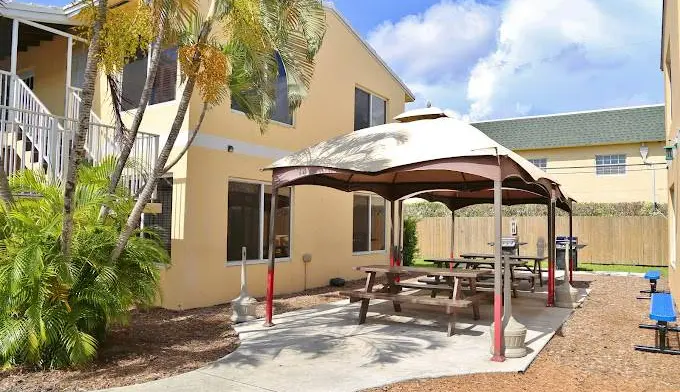
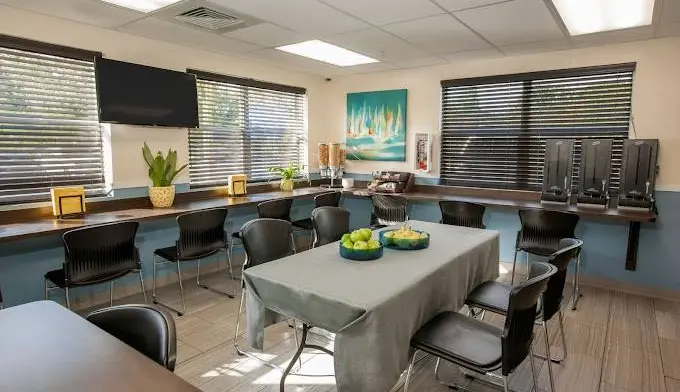
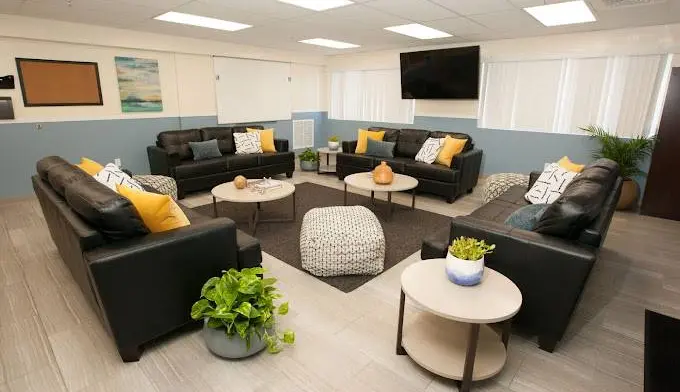
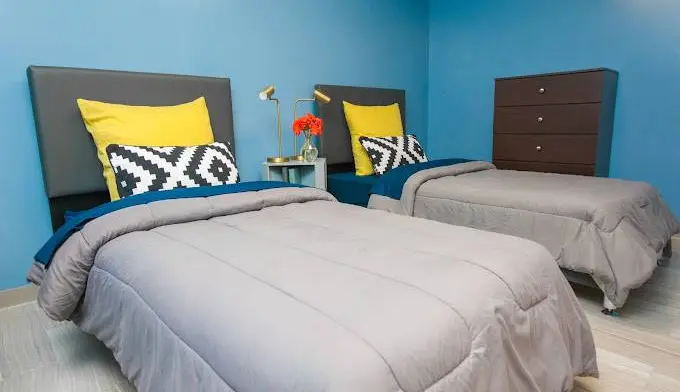
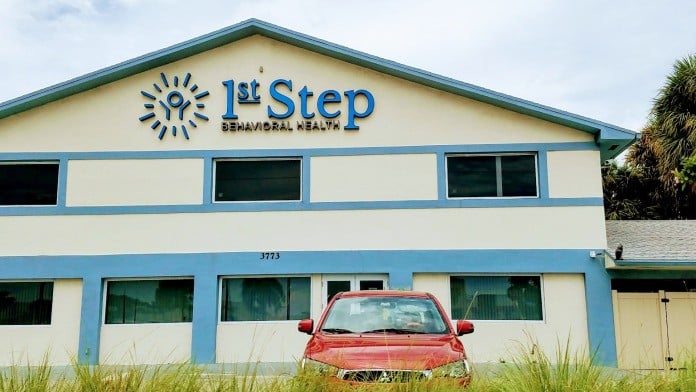
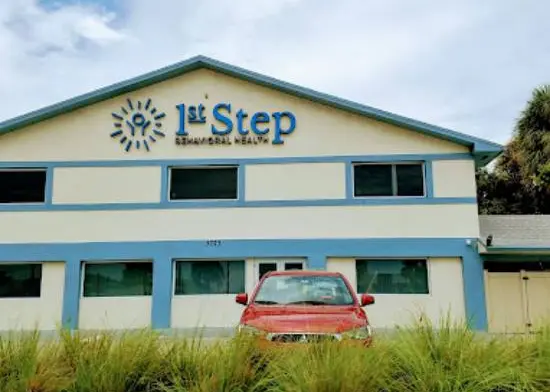
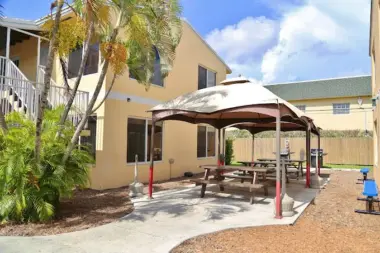
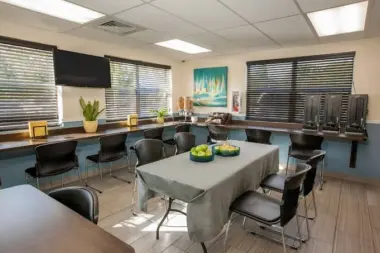
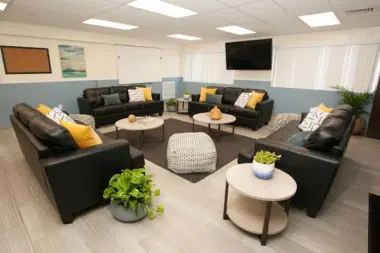
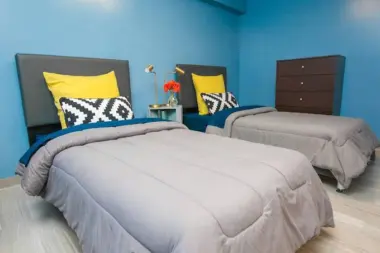
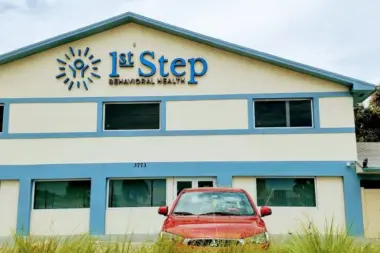
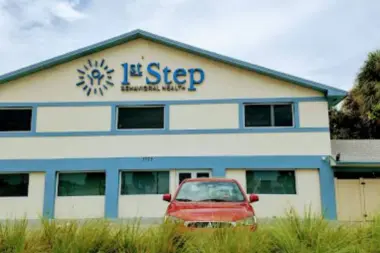
Accepted Insurance
Other Forms of Payment
Private insurance refers to any kind of healthcare coverage that isn't from the state or federal government. This includes individual and family plans offered by an employer or purchased from the Insurance Marketplace. Every plan will have different requirements and out of pocket costs so be sure to get the full details before you start treatment.
Self-pay involves paying for treatment out of your own pocket. You can use savings or credit, get a personal loan, or receive help from family and friends to fund your treatment. If you don't have insurance or your insurance plan doesn't cover a specific program, self-pay can help ensure you still get the care you need.
Financial aid can take many forms. Centers may have grants or scholarships available to clients who meet eligibility requirements. Programs that receive SAMHSA grants may have financial aid available for those who need treatment as well. Grants and scholarships can help you pai for treatment without having to repay.
Military members, veterans, and eligible dependents have access to specific insurance programs that help them get the care they need. TRICARE and VA insurance can help you access low cost or no cost addiction and mental health treatment. Programs that accept military insurance often have targeted treatment focused on the unique challenges military members, veterans, and their families face.
Addiction Treatments
Levels of Care
Outpatient treatment program therapy is provided by skilled and caring, professional staff who practice a variety of evidence based therapies. Clients will meet with their counselor and a group several times a week to touch base and work through relapse prevention techniques, life and social skill building, family, and professional dynamics. In outpatient addiction treatment, peer support and close, meaningful relationships are a critical component of recovery. Family and loved ones are encouraged to participate in counselling and treatment groups. The therapy group itself offers a network of support, reinforcement and fellowship.
Clients typically choose inpatient rehab when they are in early recovery or are experiencing a crisis that puts them at an increased risk of relapse. They reside at the treatment center for the length of their program, which may range from two weeks to more than 18 months, depending on the program design. Intensive psychotherapy is often the primary treatment modality, but clients in inpatient care may also receive holistic treatment and recovery-focused life skills training.
An intensive outpatient program or IOP, consists of regularly scheduled sessions of structured addiction treatment and mental health counseling. Addiction and co-occurring mental health problems have varying levels of care available, to correspond to a gradual ability to navigate life without the desire for drugs and alcohol abuse. The intensive outpatient program for substance abuse is a middle ground between Residential Treatment and Aftercare. IOP is a step-down level of care for individuals who have completed detox and residential, so they can continue to receive the support of treatment programming while residing without the need of 24 hour supervision. Addiction recovery is a process of change, and the levels of care and support available in treatment allow a person who is struggling to begin to transform themselves from the inside out.
Rehab aftercare programs are a collection of highly individualized services designed to promote long-term recovery. These services evolve as your needs change. Case managers and recovery teams typically begin formulating the rehab aftercare service plan early in the recovery process to facilitate your reintegration back into the home, workplace, and community.
12-step programs are addiction recovery models based on Alcoholics Anonymous (AA). A number of substance abuse programs (including some drug and alcohol rehab centers) use the 12 steps as a basis for treatment. Beginning steps involve admitting powerlessness over the addiction and creating a spiritual basis for recovery. Middle steps including making direct amends to those who've been hurt by the addiction, and the final step is to assist others in addiction recovery in the same way. 12-Step offshoots including Narcotics Anonymous (NA), Cocaine Anonymous (CA), Dual Recovery Anonymous (DRA), Sex and Love Addicts Anonymous (SLAA) and Gamblers Anonymous (GA).
The sober living home is a residence dedicated to maintaining the healing program and therapeutic community of recovery. 1st Step Behavioral Health’s sober living in Florida provides continued support and a safe, comfortable environment for individuals who are recovering from addiction and those with a dual diagnosis. Sober living programs are often used in conjunction with outpatient treatment or a partial hospitalization program for those who no longer need around the clock treatment. While supervision and continued support is provided, it is less structured than in Residential Treatment. Since accountability and responsibility are the hallmarks of sober living, their goal is to ensure a supportive community for individuals in recovery who are beginning to re-structure their independent lives.
Intervention services helps family or friends of addicts stage an intervention, which is a meeting in which loved ones share their concerns and attempt to get an addict into treatment. Professional intervention specialists can help loved ones organize, gather, and communicate with an addict. They can guide intervention participants in describing the damage the addict's behavior is causing and that outside help is necessary to address the addiction. The ideal outcome of an intervention is for the addict to go to rehab and get the help they need.
A partial hospitalization program (PHP) is a short-term form of intensive rehab, usually for those with acute symptoms that are hard to manage but don’t require 24-hour care. PHPs have structured programming (i.e. individual and/or group therapy), and usually meet 3-5 days a week for around 6 hours (i.e. 9am-3m). Some PHPs are residential (patients sleep on site) and some are not, so patients sleep at home. PHPs can last from 1-6 months, and some offer transportation and meals.
24-hour clinical care in Florida is an essential part of treatment, particularly with medical detox. Withdrawal symptoms can be severe, and supervised detox provides around the clock access to medical professionals who can adminsiter proper medications and treatment to address these symptoms and step in should an emergency occur. This intensive clinical care will help curb the withdrawal effects, minimize substance dependence, and prepare you for the next step of treatment.
1st Step’s drug detox center safely helps a substance abuser through the experience of withdrawal from habitual use of drugs and alcohol. Drug and alcohol detoxification is an intervention in the case of physical dependence to a drug or alcohol, the practice of various medical treatments for symptoms of withdrawal. Individuals who have been habitually using alcohol or drugs for a period of time will develop a chemical dependency, and it can be dangerous to try detox without medical assistance. The body and brain build up compensating measures when using certain drugs and alcohol, and simply stopping “cold turkey” can potentially cause seizure, respiratory depression and stroke.
Treatments
The goal of treatment for alcoholism is abstinence. Those with poor social support, poor motivation, or psychiatric disorders tend to relapse within a few years of treatment. For these people, success is measured by longer periods of abstinence, reduced use of alcohol, better health, and improved social functioning. Recovery and Maintenance are usually based on 12 step programs and AA meetings.
Drug rehab in Florida provides quality treatment to help individuals overcome dependency related to a wide range of addictive substances. Programs address both the physical and mental aspects of addiction in order to help you make a full recovery.
A dual diagnosis is the occurrence of both a substance use disorder and a mental health disorder at the same time. The term co-occurring disorders may be used interchangeably. When someone is struggling with both addiction and mental illness, it can make it more difficult for them to achieve recovery on their own. However, with the help of trained professionals and a targeted treatment program, they can develop the strategies and skills necessary to create a healthier lifestyle. 1st Step Behavioral Health provides clients with comprehensive dual diagnosis treatment and therapies to support them in recovery. Several levels of support are provided as patients progress in their recovery and transition back into the community.
A combined mental health and substance abuse rehab has the staff and resources available to handle individuals with both mental health and substance abuse issues. It can be challenging to determine where a specific symptom stems from (a mental health issue or an issue related to substance abuse), so mental health and substance abuse professionals are helpful in detangling symptoms and keeping treatment on track.
Opioid rehabs specialize in supporting those recovering from opioid addiction. They treat those suffering from addiction to illegal opioids like heroin, as well as prescription drugs like oxycodone. These centers typically combine both physical as well as mental and emotional support to help stop addiction. Physical support often includes medical detox and subsequent medical support (including medication), and mental support includes in-depth therapy to address the underlying causes of addiction.
Programs
Adult rehab programs include therapies tailored to each client's specific needs, goals, and recovery progress. They are tailored to the specific challenges adult clients may face, including family and work pressures and commitments. From inpatient and residential treatment to various levels of outpatient services, there are many options available. Some facilities also help adults work through co-occurring conditions, like anxiety, that can accompany addiction.
Clinical Services
Cognitive Behavioral Therapy (CBT) is a therapy modality that focuses on the relationship between one's thoughts, feelings, and behaviors. It is used to establish and allow for healthy responses to thoughts and feelings (instead of unhealthy responses, like using drugs or alcohol). CBT has been proven effective for recovering addicts of all kinds, and is used to strengthen a patient's own self-awareness and ability to self-regulate. CBT allows individuals to monitor their own emotional state, become more adept at communicating with others, and manage stress without needing to engage in substance abuse.
Dialectical Behavior Therapy (DBT) is a modified form of Cognitive Behavioral Therapy (CBT), a treatment designed to help people understand and ultimately affect the relationship between their thoughts, feelings, and behaviors. DBT is often used for individuals who struggle with self-harm behaviors, such as self-mutilation (cutting) and suicidal thoughts, urges, or attempts. It has been proven clinically effective for those who struggle with out-of-control emotions and mental health illnesses like Borderline Personality Disorder.
Group therapy is any therapeutic work that happens in a group (not one-on-one). There are a number of different group therapy modalities, including support groups, experiential therapy, psycho-education, and more. Group therapy involves treatment as well as processing interaction between group members.
In individual therapy, a patient meets one-on-one with a trained psychologist or counselor. Therapy is a pivotal part of effective substance abuse treatment, as it often covers root causes of addiction, including challenges faced by the patient in their social, family, and work/school life.
Research clearly demonstrates that recovery is far more successful and sustainable when loved ones like family members participate in rehab and substance abuse treatment. Genetic factors may be at play when it comes to drug and alcohol addiction, as well as mental health issues. Family dynamics often play a critical role in addiction triggers, and if properly educated, family members can be a strong source of support when it comes to rehabilitation.
Life skills trainings involve all the skills a person must have in order to function successfully in the world. These include time management, career guidance, money management, and effective communication. Truly successful addiction recovery is based on the ability to not only live substance-free, but to thrive. Life skills teaches the practical necessities of functioning in society, which sets clients up for success in life, and therefore sobriety.
Nutrition therapy, aka medical nutrition therapy (MNT), is a way of treating physical, emotional, and medical conditions through diet. Specific dietary plans are designed by professional nutritionists or registered dietitians, and patients follow them in order to positively affect their physical and mental health.
Experiential therapy is a form of therapy in which clients are encouraged to surface and work through subconscious issues by engaging in real-time experiences. Experiential therapy departs from traditional talk therapy by involving the body, and having clients engage in activities, movements, and physical and emotional expression. This can involve role-play or using props (which can include other people). Experiential therapy can help people process trauma, memories, and emotion quickly, deeply, and in a lasting fashion, leading to substantial and impactful healing.
One benefit of nicotine replacement therapy (NRT) in Florida is variety. NRT comes in multiple forms that you can use in different ways. This allows you to choose the form that works best with your needs and lifestyle. Your options include gum, patches, inhalers, and prescription medication.
Amenities
-
Gym
-
Yoga Studio
-
Residential Setting
-
Private Rooms
Staff & Accreditations
Staff
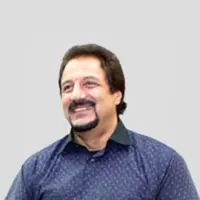
Gus Crocco
CEO & Clinical Director
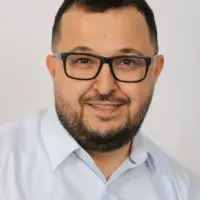
Naz Andekian
Chief Operations Officer
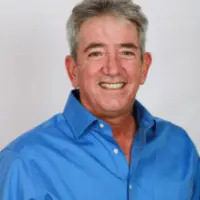
Jay Crocco
Chief Financial Officer
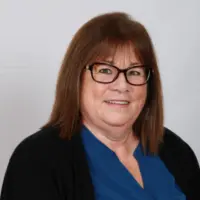
Marge Allen
Executive Administrator
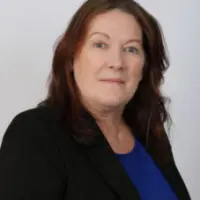
Patricia Fitzgerald
Director of Human Resources
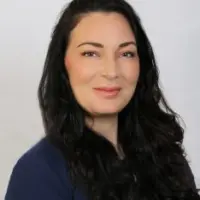
Shawn Hunsberger
Director of Nursing

Brittany Polansky
Assistant Clinical Director

Janice Watson
Clinical Quality Assurance Supervisor
Accreditations

The Commission on Accreditation of Rehabilitation Facilities (CARF) is a non-profit organization that specifically accredits rehab organizations. Founded in 1966, CARF's, mission is to help service providers like rehab facilities maintain high standards of care.
CARF Accreditation: Yes

LegitScript has reviewed 1st Step Behavioral Health: Drug Rehab in Pompano Beach as part of their certification program, and has determined that it meets the LegitScript standards for legality, safety and transparency.
LegitScript verified in January 2021

State Licenses are permits issued by government agencies that allow rehab organizations to conduct business legally within a certain geographical area. Typically, the kind of program a rehab facility offers, along with its physical location, determines which licenses are required to operate legally.
State License: Florida
License Number: 76-0751278

The Joint Commission, formerly known as JCAHO, is a nonprofit organization that accredits rehab organizations and programs. Founded in 1951, the Joint Commision's mission is to improve the quality of patient care and demonstrating the quality of patient care.
Joint Commission Accreditation: Yes
Accreditation Number: 419127

The National Association of Addiction Treatment Providers (NAATP) is a professional association that represents organizations in the field of addiction services. Founded in 1978, NAATP's mission is to advance addiction services and ensure that high-quality addiction treatment is available and accessible.
NAATP Member: Yes
Contact Information
3773 N Federal Hwy
Pompano Beach, FL 33064





